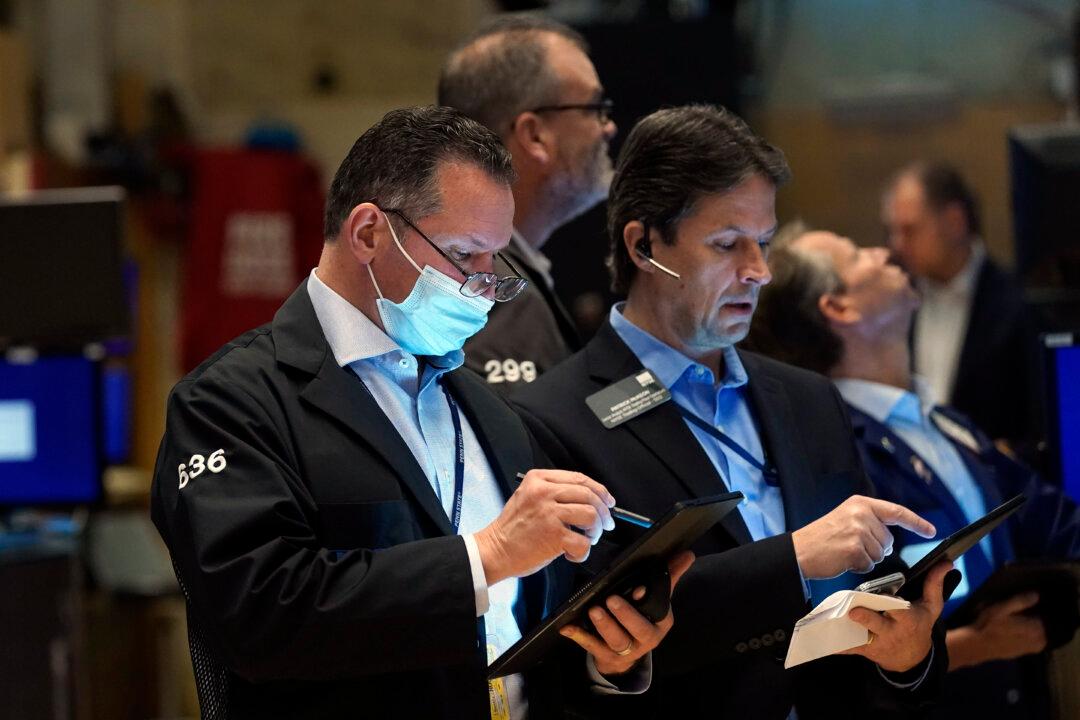U.S. stock futures and crude oil prices slumped on Nov. 30 amid a broader risk-off pivot in markets after Moderna’s CEO said that existing vaccines will be far less effective against the Omicron variant.
Tradingview market data from around 5:15 a.m. New York time suggested Wall Street’s main indexes were poised to drop on opening bell later in the day. Futures on the Dow Jones Industrial Average dropped 490 points, or 1.40 percent, S&P 500 futures fell 51.5 points, or 1.1 percent, and Nasdaq 100 futures declined 78.5 points, or 0.48 percent.





